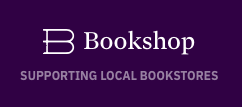Author: Becky Albertalli
Publisher: Balzer & Bray
Release date: April 7th 2015
Pages: 303
Genre: Young Adult contemporary
Source: Purchased
Add to Goodreads | Puchase from Bookshop
Sixteen-year-old and not-so-openly gay Simon Spier prefers to save his drama for the school musical. But when an email falls into the wrong hands, his secret is at risk of being thrust into the spotlight. Now Simon is actually being blackmailed: if he doesn’t play wingman for class clown Martin, his sexual identity will become everyone’s business. Worse, the privacy of Blue, the pen name of the boy he’s been emailing, will be compromised. With some messy dynamics emerging in his once tight-knit group of friends, and his email correspondence with Blue growing more flirtatious every day, Simon’s junior year has suddenly gotten all kinds of complicated. Now, change-averse Simon has to find a way to step out of his comfort zone before he’s pushed out—without alienating his friends, compromising himself, or fumbling a shot at happiness with the most confusing, adorable guy he’s never met.
I know I'm super late to this party, but... what an adorable book! I watched Love, Simon a while ago and bought this book because I loved the movie, but then never actually got around to reading it. After watching the spin-off series Love, Victor (which I loved even more than the original movie; so cute!!), I decided to finally read the book that started this franchise. And I was not disappointed!
I loved Albertalli's writing style, in particular the dialogue and Simon's internal dialogue. It took me a little time to get used to because it's different from what I usually read, but after a somewhat slow beginning, I loved everything about it. Albertalli's writing and dialogue are witty and endearing, but not in an unrealistic John-Green-type of way (not that I don't love John Green's writing--but.. I don't know any real people who talk like his characters), but in a way that felt entirely relatable and realistic. There are so many hilarious and insightful pieces of dialogue and Simon's thoughts in here that I absolutely loved. Because the writing is so great, I honestly didn't even care what happened; I'm sure this book would have been even more of a page turner if I hadn't already seen the movie and known who Blue was/how the story would end, but I couldn't put the book down regardless, because the writing is so captivating and brought elements of this story to life that the movie couldn't capture.
I also loved the characters. Simon does plenty of things that are not okay, and admits to not always being the best person, like when he realizes how little he knows about his friends' lives. But none of those flaws make him a less lovable character; he is a completely realistic teenage boy, and I loved him. Blue is also an adorable character, and I the romance and chemistry between them through their emails is incredibly well done. I also loved him family dynamic and especially his relationship with his sisters.
To be honest, I was a little suspicious of this book because it was written by a heterosexual white woman and, if the identities were accurately represented in the movie version, it would be primarily about teens of color and a white gay boy. I was worried that this would be another case of the characters' races not even being mentioned or being mentioned in passing but having nothing to do with the story and not being addressed at al. However, I was pleasantly surprised by this book's discussion of race. This is one of the few YA books I know that were white author about a white protagonist where secondary characters' races are actually discussed and addressed in a more meaningful way than just a passing comment on someone's skin color. Race definitely still isn't discussed enough in this book, but it is addressed a few times in a way that doesn't reduce race to skin color or diversity but actually addresses the histories of racism. While of course this can't replace #ownvoices stories, I do think that this is a step in the right direction in terms of what white authors can do to not just make their books "diverse," but to actually incorporate discussions of race and racism into their work. And asides from one comment about "coming out" being easier for girls, which I think is a little simplistic, I did really like the discussions of homosexuality as well.
I really loved everything about this book; this is such a cute, fun story that still addresses some important issues. I can't believe I waited this long to read it! I definitely need to catch up on the rest of the Simonverse novels.



















